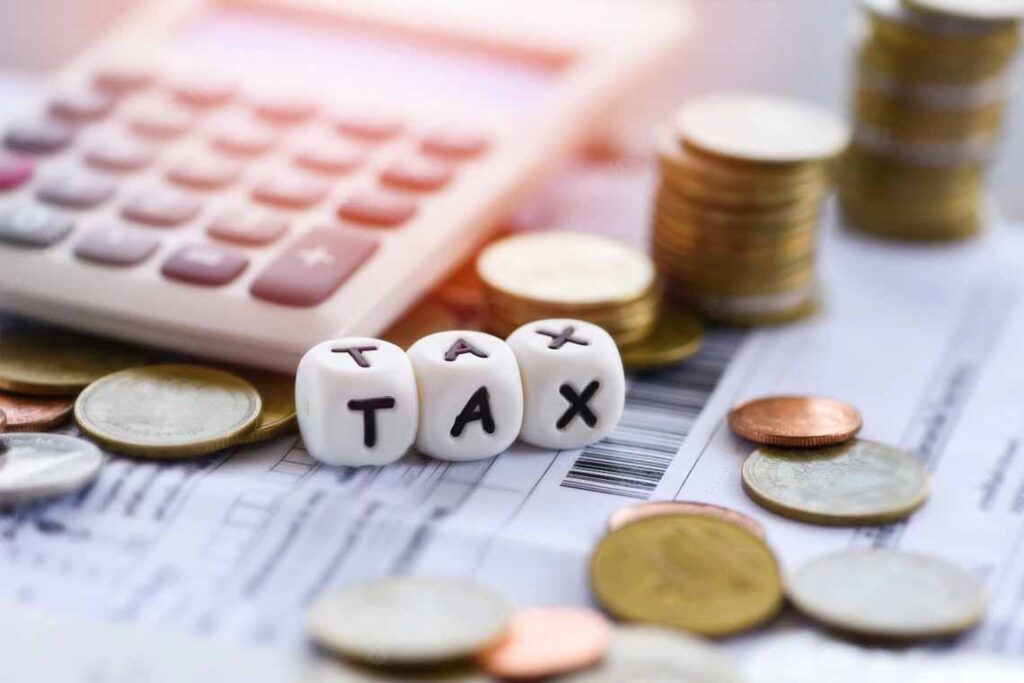1. Rationalization of provisions of TDS on sale of immovable property [Section 194-IA amended w.e.f. 1-4-2022]
(A) Reason for making Amendment
Section 194-IA of the Act provides for deduction of tax on payment on transfer of certain immovable property other than agricultural land. Section 194-JA(I) provides for deduction of lax by any person responsible for paying to a resident any sum by way of consideration for transfer of any immovable property (other than agricultural land) at the time of credit or payment of such sum to the resident at the rate of 1%. of such sum us income-lax thereon. Section 194-IA(2) provides that no deduction of tax shall be made where the consideration for the transfer of an immovable property is less than Rs. 5,00,000.
As per the provisions of the said section, TDS is to be deducted on the amount of consideration paid by the transferee to the transferor. This section does not take into account the stamp duty value of the immovable property, whereas, as the provisions of sections 43CA and 50C of the Act, for the computation of income under the head “Profits and gains from business or profession” and “capital gains” respectively, the stamp duty value is also to be considered. Thus there is inconsistency in the provisions of section 194-lA and sections 43CA and 50C of the Act,
(B) Amendment made
In order to remove inconsistency, the Finance Bill. 2022 has amended section 194-lA to provide that in case of transfer of an immovable property (other than agricultural land). TDS is to be deducted at the rate of 1%. of
- such sum paid or credited to the resident or
- the stamp duly value of such property,
whichever is higher.
In case the consideration paid for the transfer of immovable property and the stamp duty value of such property are both less than fifty lakh rupees. then no tax is to be deducted under section 194-IA.
2. TDS on benefit or Perquisite of a Business or Profession [Section 194R inserted w.e.f. 1-7- 2022]
(A) Reason for making Amendment
As per clause (iv) of section 28 of the Act, the value of any benefit or perquisite, whether convertible into money or not, arising from business or exercise of profession is to be charged as business income in the hands of the recipient of such benefit or perquisite.
However, in many cases, such recipient does not report the receipt of benefits in their return of income, leading to furnishing of incorrect particulars of income.
(B) Amendment made
Accordingly, in order to widen and deepen the tax base, the Finance Hill, 2022 has inserted a new section 194R which provides as under
Deduction of Tax on benefit of perquisite In respect of business or profession [Section 194R inserted w.e.f. 1-4-2022] :.
- Tax to be deducted @ 10% of the value or aggregate of value of benefit or perquisite arising from business or the exercise of a profession [Section 194R(1)]:
Any person responsible for providing to a resident, any benefit or perquisite, whether convertible into money or not, by such resident, shall, before providing such benefit or perquisite, as the case may be, to such resident, ensure that tax has been deducted in respect of such benefit or perquisite 10% of the value or aggregate of value of such benefit or perquisite.
(2) Situation where benefit or perquisite is wholly in kind or partly in cash and partly in kind [First proviso] :
In a case where the benefit or perquisite, as the case may be. is wholly in kind or partly in cash and partly in kind but such part in cash is not sufficient to meet the liabilities of deduction of tax in respect of whole of such benefit or perquisite, the person responsible for providing such benefit or perquisite shall, before releasing the benefit or perquisite, ensure that tax required to be deducted has been paid in respect of the benefit or perquisite.
(3) Provisions of section 194R not to apply in certain cases [ second & third proviso to section 194R]:
(i) The provisions of section 194R shall not apply in case of a resident where the value or aggregate of value of the benefit or perquisite provided or likely to be provided to such resident during the financial year does not exceed Rs. 20,000 (Second proviso]:
(ii) The provisions of this section shall not apply to a person being an individual or a Hindu Undivided Family, whose total sales, gross receipts or turnover does not exceed Rs. 1 Crore in case of business or Rs. 50 Lakh in case of profession. during the financial year immediately preceding the financial year in which such benefit or perquisite. as the case may be, is provided by such person.
(4) Board may issue guidelines for the purposes of removing the difficulty [Section 194R(2)]:
If any difficulty arises in giving effect to the provisions of this section, the Board may, with the previous approval of the Central Government, issue guidelines for the purpose of removing the difficulty.
(5) Guidelines to laid before each House of Parliament and shall be binding [Section 194R(3)]:
Every guideline issued by the Hoard under section l94R(2) shall as soon as may be after it is issued, be laid before each House of Parliament. and shall be binding on the income-tax authorities and on the person providing any such benefit or perquisite.
3. Consequence for failure to deduct/collect or payment of tax – Computation of interest [section 201(1A) and Section 206C(7) amended w.e.f. 1-4-2022]
(A) Reason for making Amendment
Section 201 deals with the consequences of persons who fail to deduct tax or after deducting, fail to deposit the same to the credit of the Central Government. Section 201(1A) provides that if any person who is liable to deduct tax as source does not deduct it or after so deducting fails to pay the same to the credit of the Central Government, then he shall be liable to pay simple interest at the rates specified therein. Similarly, section 206C(7) provides that if any person who is liable so collect tax at source does not collect it or after so collecting fails to pay the same to the credit of the Central Government, then he shall be liable to pay interest at rates specified therein.
It has been observed that computation of interest under the said provisions in case where the default for deduction/collection of tax or payment of tax continues is subject matter of frequent litigation.
(B) Amendment made
In order to make the intention of the legislation clear and to make it free from any misinterpretation, the Finance Bill, 2022 has:
(i) amended section 201( 1A) to provide that where any order is made by the Assessing Officer for the default under section 201(1), the interest shall be paid by the person in accordance with the order made by the Assessing Officer in this regard:
(ii) amended section 206C(7) to provide that where any order is made by the Assessing Officer for the default under section 206C(6A). the interest shall be paid by the person in accordance with the order made by the Accessing Officer in this regard.
4. Rationalization of Provisions of Sections 206AB and 206CCA to widen and deepen Tax-base [Sections 206AB and 206CCA amended w.e.f. 1-4-2022]
(A) Reason for making Amendment
In order to widen and deepen the tax-base and to nudge taxpayers to furnish their return of income, Finance Act, 2021 inserted sections 206AB and 206CCA in the Act. The said sections provide for special provision for deduction and collection of tax at source respectively, in case of specified persons at higher rates specified therein.
“Specified person” has been defined to mean a person who has not filed the returns of income for both the two assessment years relevant to the two previous years immediately preceding the financial year in which tax is required to be deducted or collected, fur which the time limit for filing return of income under section 139(1) has expired; and the aggregate of tax deducted at source and tax collected at source in his case is Rs.50,000 or more in each of these two previous years. Government has provided online utility to taxpayers to check whether the person is specified person or
Further, the provisions of section 206A13 are not applicable in relation to transactions on which tax is to be deducted under Section 192, 192A, 194B, 194BB, 194LBC or 194N of the Act.
(B) Amendment made
In order to ensure that all the persons in whose case significant amount of tax has been deducted do furnish their return of income, the Finance Bill, 2022 has reduced 2 years requirement to I year by amending sections 20(,AB and 206CCA of the Act to provide that “specified person” to mean as a person who has not filed its return of income for the assessment year relevant to the previous year immediately preceding the financial year in which tax is to be deducted or collected, as the case may be. and the amount of tax collected and deducted as source is 50,000 or more in the said previous year.
However, in order to reduce the additional burden on individual and Hindu Undivided family (HUF) taxpayers covered under sections 194-IA. 194-IB and 194M of the Act for whom simplified tax deduction system has been provided without requirement of TAN, the Finance Bill, 2022 has the provisions of section 206AB will not apply in relation to transactions on which tax is to be deducted under the said sections of the Act.
In addition to above, the Finance Bill, 2022 has rectified a drafting error in sections 206AB and 206CCA wherein the terms “deductor” and “collectee” respectively were used incorrectly. Further. since the returns are now being furnished electronically, the bill has provided that in place of ‘filing’ of Return, the term ‘furnishing’ of return may be substituted.
Further, as a consequential amendment in section 194-IB the bill has omitted the reference of section 206AB from section 206AB (4).











